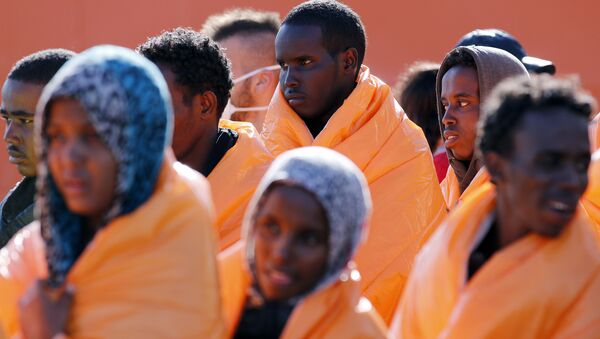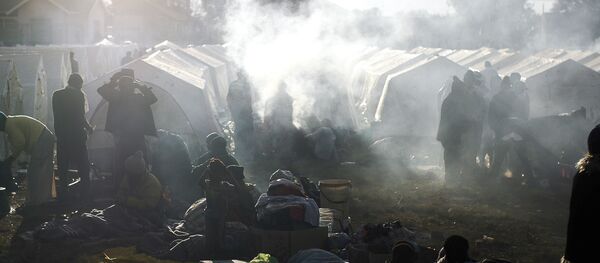In a concern for European authorities looking to reduce the number of irregular arrivals in the EU, the beginning of 2016 has seen a spike in the number of refugees and migrants entering Italy compared to the same time last year.
Italian Interior Ministry figures have shown that in the first three months of 2016, more than 16,000 people have been rescued in calls of distress in the Mediterranean Sea between Libya and Sicily, 6,000 more than during the same period of time last year.
21st century will be remembered as era of human mobility. #RefugeeCrisis is global challenge and requires global response. #SyrianRefugees
— DimitrisAvramopoulos (@Avramopoulos) March 30, 2016
The figures have raised concerns that Europe's migration crisis could worsen in 2016, as continued instability and violence drives many people from their homes in the Middle East and Africa.
These concerns were also backed up by more recent figures, with Italy's coast guard announcing on Tuesday that 1,569 people had been rescued in 11 different operations over the weekend.
When 1 door closes another more dangerous more lucrative 1 opens. Media report the opening of #Turkey #Italy route https://t.co/twAk01LWng
— MSF Sea (@MSF_Sea) March 30, 2016
This has led many to question the effectiveness of the newly announced EU-Turkey refugee deal, which is aimed at stemming the flow of refugees and migrants entering Greece from Turkey.
UNHCR refuses to send #refugees back to Turkey, describes centres as 'prisons' https://t.co/9u0m5Rrnll #StopTheDeal pic.twitter.com/KWZBb6ejLg
— Amnesty EU (@AmnestyEU) March 23, 2016
EU Commission spokesperson Natasha Bertaud said "less than 1,000" people had arrived in Greece over the past week, down from an average of 2,000 per day prior to the deal.
More than 1.2 million migrants and refugees have entered Europe since the beginning of 2015, with the majority entering the EU through Greece, via Turkey.
However, with the weather set to improve in the coming months, there are concerns among European officials that those numbers could be replicated throughout 2016, placing more strain on the resources of some already overstretched EU states.



